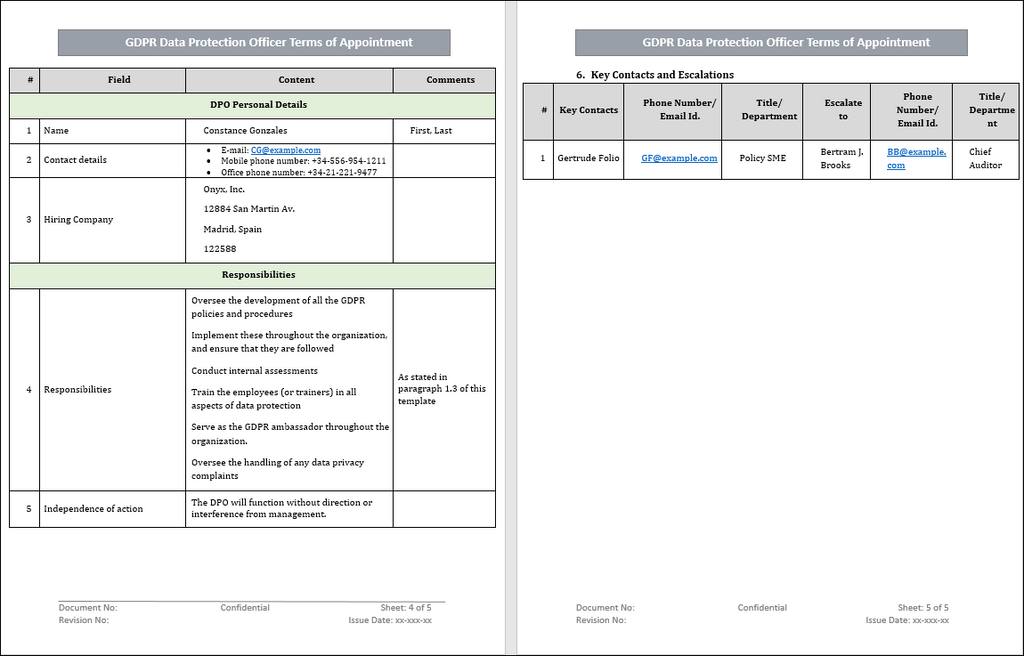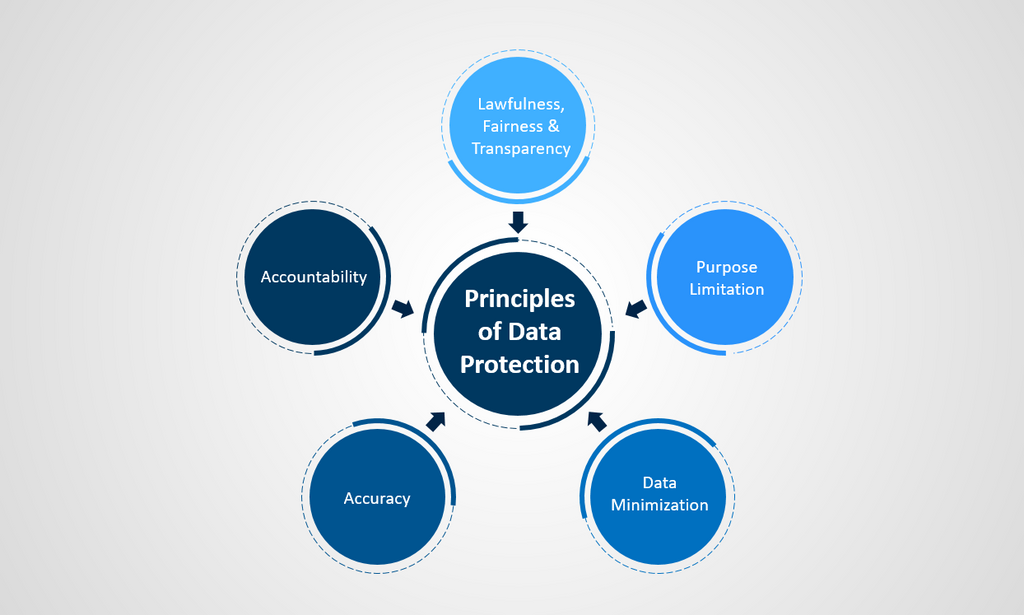Data Protection Officer(DPO) : Terms Of Appointment Letter with Template
Data Protection Officer
A data protection officer, also known as a data privacy officer or DPO, oversees all aspects of data privacy within a company. The Data Protection Officer (DPO) ensures that an organization complies with privacy laws and best practices.

The Data Protection Officer's Terms of Appointment define the DPO's roles, responsibilities, and expectations.
A Data Protection Officer (DPO) oversees data protection compliance within an organization. The DPO ensures that data is collected, processed, and stored by all applicable protection laws and regulations.
Importance of Data Protection Officer
A data protection officer (DPO) is an important position within an organization responsible for safeguarding data and compliance with data privacy legislation.
A DPO must be appointed by the organization and given the necessary authority to perform its duties effectively.
The DPO must be given a clear mandate by the organization to be effective. The DPO must also be given the resources and support needed to perform their duties.
The DPO is responsible for the implementation of data protection policies and procedures. The DPO is also responsible for monitoring compliance with data protection legislation and investigating potential data privacy breaches.
Policy Statement of Data Protection Officer
The policy statement of the data protection officer (DPO) is a high-level document that sets out the organization's commitment to data protection. It should be approved by the board or senior management and reviewed and updated regularly.
The statement should state the organization's commitment to compliance with the data protection principles and explain how it will meet its obligations under the data protection legislation.
The statement should also explain the organization's commitment to data security and describe the measures that will be taken to protect personal data from loss, unauthorized access, disclosure, or destruction.
Principles of Data Protection
Data Protection Regulation (GDPR) sets fundamental principles at the heart of the general data protection regime.
These basic principles are set out right at the beginning of the GDPR, and they both, directly and indirectly influence the other rules and obligations found throughout the legislation.

1. Lawfulness, fairness, and transparency:
The principle of transparency requires that any information and communication relating to the processing of those personal data be easily accessible and easy to understand and that clear and plain language be used.
2. Purpose Limitation:
Personal data should only be collected for specified, explicit, and legitimate purposes and not further processed in a manner that is incompatible with those purposes. In particular, the specific purposes for personal processing data should be explicit, legitimate, and determined when collecting personal data.
3. Data Minimization:
Processing personal data must be adequate, relevant, and limited to what is necessary concerning the purposes for which they are processed. Personal data should be processed only if the purpose of the processing could not reasonably be fulfilled by other means.
4. Accuracy:
Controllers must ensure that personal data are accurate and, where necessary, kept up to date, taking every reasonable step to ensure that personal data that are inaccurate regarding the purposes for which they are processed are erased or rectified without delay.
5. Accountability:
Finally, the controller is responsible for, and must be able to demonstrate, their compliance with all the principles named above of Data Protection.
Factors of Data Protection Officer
Data Protection Officer (DPO) is a new designation required by the GDPR. The regulation stipulates that all organizations that process personal data must appoint a DPO.
The Factors of Data Protection Officer are:
- The management of the organization must designate the DPO.
- The DPO must know data protection laws and principles well.
- The DPO must be well-versed in the GDPR and other data protection laws.
- The DPO must communicate effectively with the organization's management and employees.
- The DPO must be able to enforce the organization's data protection policies effectively.
Responsibilities of the Data Protection Officer
The responsibilities of a DPO include the following:
- Ensuring compliance with PDPA when developing and implementing policies and processes for handling personal data.
- Fostering employee data protection culture and communicating individual data protection policies to stakeholders.
- Managing personal data protection-related queries and complaints.
- Alerting management to any risks that might arise about personal data; and
- Liaising with the PDPC on data protection matters, if necessary.
Guidelines for Appointing a Data Protection Officer
The DPO is responsible for informing and advising the company on data protection issues and cooperating with the supervisory authority. In addition, the DPO must monitor compliance with the GDPR and other data protection laws and ensure that the company’s data processing activities comply with these laws.
Some guidelines must be followed while appointing a data protection officer. They are:
- The DPO must have expert knowledge of data protection law and practice.
- The DPO must be independent and have no conflict of interest about the company’s data processing activities.
- The DPO must be able to carry out their tasks in an objective and unbiased manner;
- The DPO must be available to the company’s employees and customers on data protection matters.
Things to be included in the Appointment Letter of the Data Protection Officer Template
The template should include the following:
- Name and contact details of the new DPO.
- Name of the hiring company
- A general description of responsibilities as described in the GDPR.
- Any other duties assigned by the company.
- Confirmation that the DPO functions independently without instruction or interference from management
- Name of the direct supervisor
- Signatures of both the supervisor and the Data Protection Officer.
Conclusion
A Data Protection Officer has a significant role in making the whole GDPR regime successful. With a DPO in place, organizations will find it easier to comply with GDPR and do business as usual without worrying about flouting the laws.
This individual is hired to advise the company, check data security, and issue instructions if data protection regulations are violated.
It is possible to designate an in-house Data Protection Officer from within your ranks, but in most cases, it is worth setting up an external data consultant.

